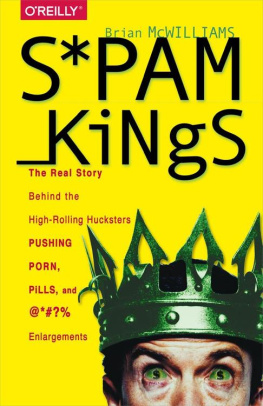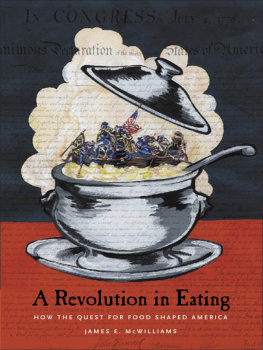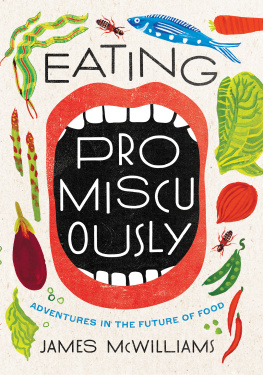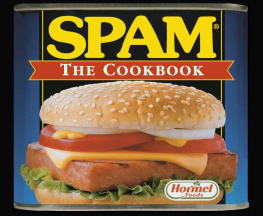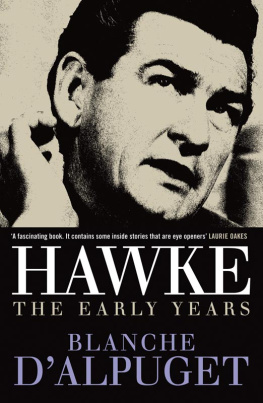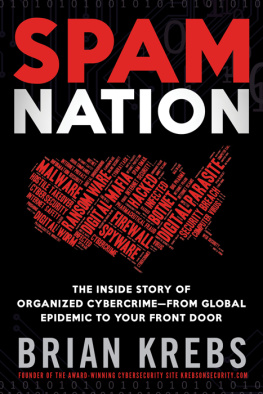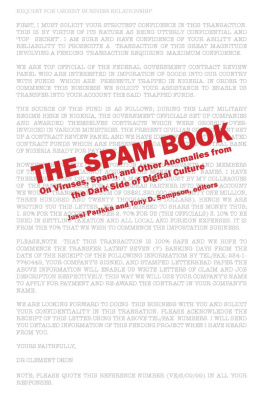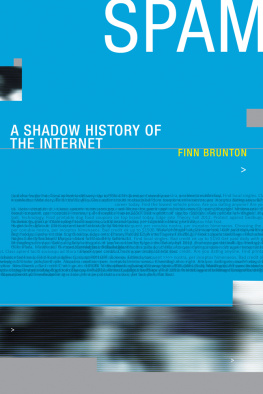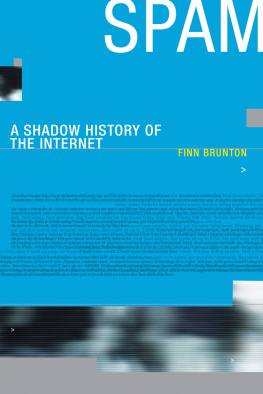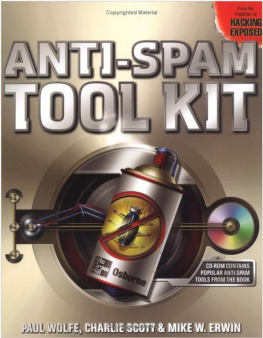The genesis of this book was an unusual onslaught of junk email in May 2003. Over the course of two weeks, I received over one hundred spams for pills and other products that I traced to a company in nearby Manchester, New Hampshire. I discovered spammers practically in my backyard and decided to tell the world about it.
I am grateful to my editors at Salon.com, especially Andrew Leonard, as well as my editors at Wired News , including David Ian Miller, for encouraging me that summer to write about the company, Amazing Internet Products LLC, and its fascinating founders. Thanks also to Mark Beavis and Jon Greenberg of New Hampshire Public Radio for working with me to advance the story further for radio.
I am indebted to my agent, Martha Jewett, for recognizing that a book about some of the major figures behind the spam problem was long overdue. Martha's help in conceiving Spam Kings was immensely important to me.
My editor at O'Reilly, Allen Noren, guided this project with just the right mix of hard-boiled skepticism and patient handholding. Nothing motivates an author like knowing your editor is a better writer. Special thanks to Allen and to the rest of the team at O'Reilly for their dedication to this project.
I appreciate the help of John Levine, who provided a crucial technical review of the manuscript.
My initial research was greatly assisted by Piers Forrest and Gordon Shumway. Reporting on Davis Hawke's neo-Nazi years by Erik Hedegaard and Gary Henderson was a big inspiration. I am also grateful to the scores of people who provided important background but were not mentioned in the book, including Bill Cole, "Relic," Jeanne Kempthorne, Anne Mitchell, Dan Clements, Jeffrey Eilender, Brendan Battles, Stan McDonald, Bill Nelson, Tanya Bibeau, Ted Bernard, Andrew Broome, Blair Russell, and the numerous sources who've asked to remain anonymous.
Finally, thanks to my family, especially my wife Diane, for accompanying me on this journey and for your feedback along the way.
Introduction
Most businesses jump at the opportunity for free publicity. But none of the email marketers, or spammers, profiled in this book were eager to see their stories in print. In fact, some have even threatened lawsuits over its publication.
No wonder that Spam Kings is the first book to publicly unmask the people behind the junk email problem. As Jennifer Archie, a leading anti-spam attorney, recently told me, a spammer's main protection is anonymity.
"Once you've exposed a spamming John Doe, he doesn't have a legal defense. So he'll guard his anonymity with everything he has," says Archie.
By deftly using anonymity, spammers have tapped into a vast market. Since most spam-related sales transactions are furtive, reliable statistics are hard to come by. But a study published by the U.S.-based Direct Marketing Association estimated that consumers spent over $32 billion in 2003 on products and services advertised by email.
In the process, some say spam has nearly ruined email. Over 60 percent of all email traffic in the first half of 2004 was spam, according to email filtering firm Brightmail. (Only three years ago, the volume of unsolicited commercial email was just 8 percent of all message traffic.) In 2004, an estimated five trillion spam messages will clog Internet users' in-boxes. AOL alone blocks over one billion spam messages every day. According to Ferris Research, junk email costs society $10 billion in lost productivity, filtering software, and other expenses.
Once a problem that vexed only Internet geeks, spam has now earned the ire of consumers, business leaders, lawmakers, regulators, and the mass media. For many, hearing "You've got mail" is no longer a happy sound.
The people behind the junk email problem are often unsavory characters running shady, if not outright illegal, businesses. So why descend into their world and find out what makes them tick? Why should we, as a society, need the gory details of how these high-tech hucksters make a buck?
As citizens, Internet-dependent businesses, and policy makers strategize for the next phase of the battle to save cyberspace, it's my hope that Spam Kings can provide an enlightening and entertaining response to the edict "know thy enemy."
Email was built on an architecture of openness and trust. But when spammers discovered the medium, they saw an opportunity that could be exploited. Like air pollution, overfishing, and roadside litter, spam represents the destruction of a public resource by private interests.
Internet users reacted to this overgrazing of their common land like angry villagers with pitchforks. They tried to run the junk emailers out of their virtual communities by publishing spam blacklists and closing off their networks to the abusers. In response, spammers learned a variety of stealthy tactics to disguise their acts and hide their identities.
Spam Kings chronicles five crucial years in the cat-and-mouse game between a dozen or so high-profile spammers and the people determined to drive them off the Internet. With perhaps thousands of spammers currently in operation and many, many people dedicated to fighting them, it's nearly impossible to tell the whole story of the junk email conundrum.
But study the rise and fall of one spammer, Davis Wolfgang Hawke, and you will learn nearly all you need to know about the intractability of the junk email problem.
Hawke is the central figure of Spam Kings , but not because he's the biggest spammer of all time. Hawke certainly had his successes. At the age of twenty-five, he became a millionaire by spamming penis-enlargement pills. In the process, he also became the target of numerous lawsuits designed to drive him out of business. A high-IQ chess player and honors student, Hawke chose spamming after his career as a brainy neo-Nazi leader imploded. Hawke put his pursuit of easy wealth ahead of everything else: his education, his family, his girlfriend, and even his own freedom.
Hawke's hubris leads him into a series of confrontations with spam opponents, the most important of whom is Susan Gunn. Gunn, a forty-something, mild-mannered computer novice, was dragged into the fight when her America Online account overflowed with spam. In time, her alias "Shiksaa" would strike fear into the heart of spammers everywhere.
Like many junk emailers, Hawke has the misfortune of crossing paths with Shiksaa, who becomes a volunteer for the anti-spam organization named Spamhaus. Throughout the book, she helps to unmask scores of spammers, and even land some in jail.
Spam Kings is the chronicle of Hawke's and Shiksaa's parallel paths through the spam underworld. Along the way, readers meet a bizarre cast of characters, including:
Sanford WallaceOne of the original spam kings, Wallace insists that spam is a First Amendment right. He buries the Internet with the stuff in the mid-90s. You'll learn what happens when lawyers from a dozen Internet service providers try to convince Wallace that there's nothing constitutional about spam.


